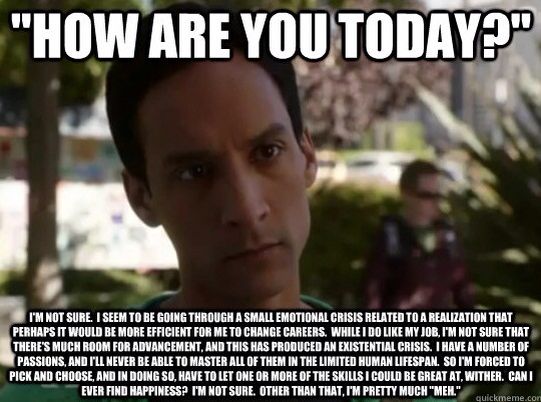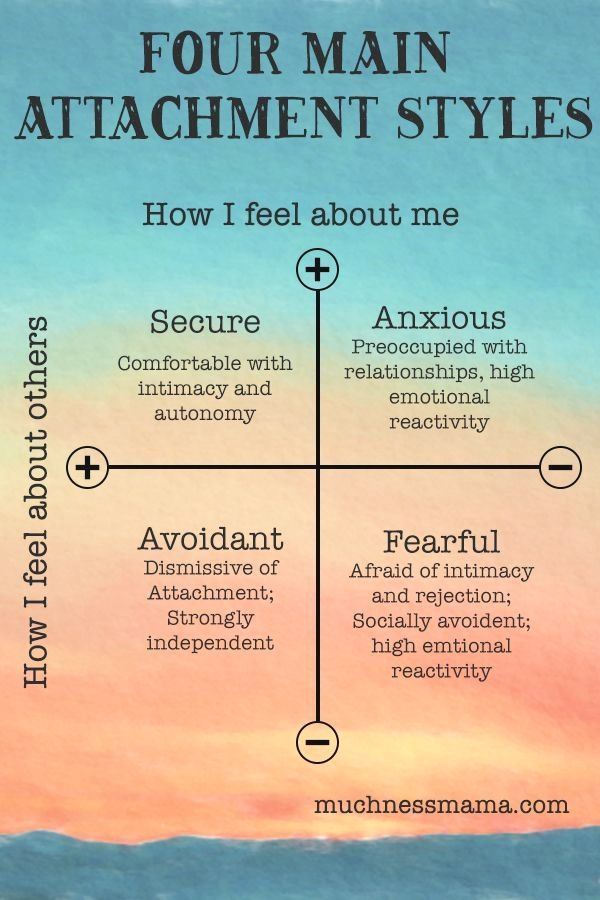Am i an aspie
Interpreting your Aspie Quiz scores
Although the Aspie Quiz is not as scientifically backed as some of the other psychometric tests used to assess autism, it’s deeper and more insightful than it may appear at first. I actually think it’s more useful than some of the more popular autism tests such as the AQ, but interpreting your results is not necessarily as straight-forward. After reading this post, you will probably get more out of the Aspie Quiz.
The Aspie Quiz results are multi-faceted, and so there are two things to make sense of:
- What do the Aspie score and the neurotypical score actually mean, and how do they relate?
- What do the subcategories mean?
ND & NT scores
The Aspie Quiz gives two scores rather than one, which can be quite confusing, especially when both scores just about balance each other out. Basically, the Aspie Quiz measures autistic traits on the one hand, and social abilities on the other, which are attributed to neurotypicality.
This also means that if you have greater social skills or an ability to mask your autistic behaviors, you may score higher on the neurotypical side and lower on the autism side. This limitation is not distinct to this test, as camouflaging can influence the results of most of the other psychometric tests.
Most psychometric tests for autism have a threshold score, above which there is a distinct likelihood of autism. The Aspie Quiz does as well, but it’s based on two scores, meaning the ratio is more significant than either individual score.
Basically, if your Aspie score is 35 points greater than your neurotypical score, you are likely autistic. An Aspie score of 120 and a neurotypical score of 132 indicate more neurotypical traits, which means autism is not probable, although not ruled out. As stated, camouflaging can actually camouflage your Aspie score. To test how much you camouflage, take the CAT-Q.
Besides, several psychometric tests need to be done to conclusively indicate or rule out autism. Not all autistic people necessarily score above the threshold on each test.
Not all autistic people necessarily score above the threshold on each test.
Domains
The subcategories of the Aspie Quiz are arguably the most interesting part, but this is exactly the part that is largely overlooked, because the categories are not explained.
The Aspie Quiz features 5 domains: talent, perception, communication, relationships, and social. Now, the test is not comprehensive enough to give a real measure of most of these domains. Talent for example is a really broad concept, and the Aspie Quiz wasn’t developed specifically to measure that. Nor is this a test measuring the extent of perceptive abilities—and so forth. When your Aspie score in relationships is high, there is a tendency to interpret that as, “Oh I must be able to relate well to fellow autistic people”. While that is likely true, that is not actually what a high Aspie score in relationships shows.
It’s better to discard everything you think you understand about the five domains of the Aspie Quiz, and just look at what the scores actually correlate with. In the table below, I compiled all the correlations.
In the table below, I compiled all the correlations.
Aspie Quiz domains
| Domain | High ND score indicates: | High ND score is associated with: | Low NT score indicates challenges with: |
|---|---|---|---|
| Talent |
|
|
|
| Perception |
|
|
|
| Communication |
|
|
|
| Relationships |
|
|
|
| Social |
|
|
A table showing the five domains of the Aspie Quiz and what the scores in each domain correlate with.
Correlations
To really get a sense of which correlations with the domains we actually commonly see in autism, in the figure below I have superimposed 81 results of autistic people (diagnosed in black, undiagnosed in grey). As you can see, a very distinct pattern emerges.
A diagram of 81 superimposed results of the Aspie Quiz.What is quite funny to me is the peak we see in neurodiverse talent. Because while it does correlate partially with our actual talent (based on special interests and a proclivity to notice details and patterns), what it also strongly correlates with is Asperger syndrome.
And given that this is an autism test, it shouldn’t be surprising that autistic people tend to score high in this domain.
Top 10 signs you have Aspergers
A humorous look at Aspergers. Englebert updated this blog post in 2021 here.
by Englebert Lau
What are the top 10 signs you have Asperger’s Syndrome?
1) You have inflexible routines
Girl: “Let’s go watch a movie tonight. ”
”
Guy: “I can’t, I have to play hockey.”
Girl: “You play hockey every Friday night. Why can’t you change your routine?”
Guy: “Good habits are important. Do you know what happens if I skip hockey to watch a movie tonight? Next week, I’ll skip hockey because you want to go shopping. The week after that, I’ll have to skip hockey because you want to paint pottery. After years of no exercise, I’ll die early and overweight. Is that what you want?”
Girl: “Oh my god, you’re crazy.”
2) You have trouble displaying emotion
[Emotion #1: happy] Girl: “Oh my god, you just won the lotto. Why don’t you look happy?”
Guy: “I am happy. I can pay off my mortgage faster. Look, I’m smiling. Doesn’t that mean I’m happy?”
[Emotion #2: sad] Girl: “I’m sorry to hear that Calgary lost to Toronto. Are you okay?”
Guy: “I’m sad. Look, I’m not smiling. Doesn’t that prove I’m sad?”
[Emotion #3: angry] Girl: “I’m so sorry that I broke your Batman DVD. ”
”
Guy: “I’m angry. Do I need to snap one of your shoes in half to prove that I’m upset?”
3) You have trouble figuring what is appropriate in social situations
Guy: [Gives flimsy hug] Girl: “Why is your hug so weak? Are you afraid of women?”
Guy: [Gives firm hug] Girl: “Why are you squeezing me so tightly? Stop choking me, you weirdo!”
4) You lack empathy
Girl: [Crying] Guy: “What’s wrong?”
Girl: “My boyfriend just dumped me.”
Guy: “Would you like a Kleenex?”
Girl: “What’s wrong with you? Haven’t you ever loved someone for years, then watched them walk away and then rip out your heart? Why can’t you show any emotion?”
Guy: “But I’m having a good day. The Calgary Flames won the hockey game. Why do I have to pretend that I’m sad just to make you feel better?”
5) You know way too much information about a single topic
Girl: “What’s the name of the girl who plays Daenerys on Game of Thrones?”
Guy: “Emilia Clarke. ”
”
Girl: “How old is she?”
Guy: “She’s 28, born on May 1st, 1987.”
Girl: “Who is she going out with?”
Guy: “She broke up with Seth MacFarlane in March 2013.”
Girl: “Why do you know this stuff?
6) You have trouble figuring out when to lie
Girl: “Does this dress make me look fat?”
Guy: “Yes.”
Girl: “What the hell is wrong with you?” [Throws shoe at guy] Guy: “Do you want me to lie, or tell the truth? It’s one or the other. You can’t have both!”
7) You have trouble describing basic emotions
Girl: “So how would you describe yourself when you’re angry?”
Guy: “I change the pitch of my voice. People who yell are usually upset.”
Girl: “But at a hockey game, if the Flames score a goal, people yell because they’re happy.”
Guy: “Emotions are unreliable. Why do you always ask how I feel? Why can’t you focus on reliable information, like facts?”
Why do you always ask how I feel? Why can’t you focus on reliable information, like facts?”
Girl: “You’re weird. You’re an emotionless robot.”
8) You care way too much about organizing stuff
Girl: [Puts DVD back on shelf] Guy: “What the hell are you doing?”
Girl: “I’m putting your Batman Blu-Ray back on your shelf. What’s your problem?”
Guy: “Did you go to kindergarten? Alphabetical order is “A”, then “B”, then “C”. You almost put Batman on my shelf after Community. Good lord. How can I find a DVD when you’re messing up my stuff?”
Girl: “Dude, relax. It’s just a Blu-Ray. It’s no big deal.”
Guy: “Sure. Just like the alphabet and kindergarten are no big deal. Without kindergarten, we wouldn’t be able to have this conversation!”
9) You have trouble understanding other people’s emotions
Girl: “Wasn’t Romeo and Juliet the best story every written? Didn’t the story make you feel really sad?”
Guy: “I didn’t feel anything. All I learned from Romeo and Juliet is that it’s important to develop technology.”
All I learned from Romeo and Juliet is that it’s important to develop technology.”
Girl: “What’s wrong with you? Romeo and Juliet both gave up their lives because they were in love. They made the ultimate sacrifice for each other!”
Guy: “Can you imagine if they lived in 2015? All they had to do was send each other one lousy text message. Bam! Problem solved. No one had to die.”
Girl: “Oh my god. You’re an emotionless robot who doesn’t understand romance.”
Guy: “Hey, it’s not my fault that they didn’t invent cell phones in the Middle Ages.”
10) You need other people to provide clear schedules and expectations
Girl: “We should hang out some time.”
Guy: “What does that mean? What day do you want to hang out? How long do you want to hang out? What do you want to do? Can you be more specific? What does hanging out mean? Does that mean doing something that you want to do? Do I have to hang out with new people, which will cause me to analyze what is acceptable social behaviour, which changes from one person to the next person? Why can’t you define anything clearly?”
Girl: [Sighs]
* * *
Englebert Lau was diagnosed with a mild case of Asperger’s Syndrome at the age of 30. The majority of Englebert’s professional career has been working in Information Technology as a Business Analyst. Englebert created http://www.hitchhikeraspie.com. The purpose of this website is to share a light-hearted perspective on Asperger’s Syndrome. Englebert would like to increase exposure about Asperger’s Syndrome for a wide range of people, by providing examples of how it affects his everyday life. Englebert loves TV series and movies, especially the HBO Game of Thrones series.
The majority of Englebert’s professional career has been working in Information Technology as a Business Analyst. Englebert created http://www.hitchhikeraspie.com. The purpose of this website is to share a light-hearted perspective on Asperger’s Syndrome. Englebert would like to increase exposure about Asperger’s Syndrome for a wide range of people, by providing examples of how it affects his everyday life. Englebert loves TV series and movies, especially the HBO Game of Thrones series.
Artwork: Debbie Denenburg – Giant Purple Planet
Note:
The Art of Autism realizes many people come to this page with the questions, Do I have Autism? or, Do I have Aspergers? We recommend diagnosis by a professional. However, there are a couple of popular online quizzes that may give you an indication if you might be on the spectrum:
- The Aspie Quiz
- Autism Spectrum Quotient online test
See also:
- Top Ten Signs a Girl is Bored by Englebert Lau
- Females and Aspergers: A Checklist by Samantha Craft
Aspie socialization manual | Autistic City
Home
tags:
personal experience
Categories:
Discussions about ASD
Two ducklings met in a poultry house. One gave the book to another and said:
One gave the book to another and said:
– Now I know why you and I are not like other ducklings, and why everyone pecks at us. Here is Andersen's swan book. He was born among ducks and all his childhood considered himself a duckling, only ugly. You will read and learn from the description of us. In general, then he came across a swan flock and only then realized that he himself was a swan. We, while living in a poultry house, must learn to survive among the ducks. Autumn will come and swans will fly - we will try to join them.
Be sure to read the second part of the book, few people know about it. Andersen admits with pain that among the swans for a long time he remained an ugly duckling - secretive, distrustful, not knowing any good feelings. Two beautiful swans wanted to nest with him, but he could not open his heart to any. The first meeting with the swans turned out to be terrible at all - he was sure that the swans would peck him. Nice greeting, say?
Take my diary too. Everything I understood about how ducks differ from swans, and how to live in a flock of birds in general.
Everything I understood about how ducks differ from swans, and how to live in a flock of birds in general.
- Asperger's is not a disease, but an alien with a human body. The disease is the inability to communicate. The cause of this disease is the fact that a person grows up among alien beings in a culture formed by them. If a neurotypical was born in aspie country, he would have the same problems.
- Being able to communicate and being neurotypical are not synonyms.
- Most communication problems are not explained by neurotypicals around you. If there were aspies, you would have the same problems. Any normal person, growing up, masters the most difficult science - how to live among rational beings (whether neurotypicals, aspies - this is secondary). The neurotypical learns it from his own kind, and the aspie is deprived of such a happy opportunity. You're wild - that's the main problem.
- Socialization is not integration into the social system, but the art of negotiating.

- Put yourself in the other person's shoes. Always imagine yourself as you look through the eyes of others. If this occupation becomes constant and involuntary for you, like breathing, then you will be in chocolate.
- Don't try to copy neurotypicals, it's a dead end. Just analyze your mistakes and try to predict the result of your actions. Model what's going on in the minds of the people around you.
- Neurotypicals learn social skills from each other in a "look and do as I do" manner. I could not learn any business in this way, I need explanations, I want to ask questions.
- Don't annoy people with the question "I didn't offend you, by any chance?"
- Don't give people even the slightest suspicion that you're getting into their souls.
- Many neurotypical rituals have a rational meaning: just in case, protect yourself from unkind encroachments. For example, it is customary for people not to fully trust each other, to leave secrets and understatements.
 This is sad, but there is a reason for this: to protect yourself from unkind encroachments. Stealing money from your pocket is not the only evil that people can do to each other. People can: climb into the soul, play on the nerves, spread gossip. Moreover, such evil people, manipulators, can be found at every step, including under the guise of a kind, sincere, even naive person. To protect against all this, the secrecy adopted in the world of neurotypicals is needed. The neurotypical is always on the lookout. Neurotypicals are overly fond of this defense, and many, unfortunately, are ready to concoct something like this themselves - if they see a gap, if someone has a weaker defense than others. Trust is something like a forbidden fruit.
This is sad, but there is a reason for this: to protect yourself from unkind encroachments. Stealing money from your pocket is not the only evil that people can do to each other. People can: climb into the soul, play on the nerves, spread gossip. Moreover, such evil people, manipulators, can be found at every step, including under the guise of a kind, sincere, even naive person. To protect against all this, the secrecy adopted in the world of neurotypicals is needed. The neurotypical is always on the lookout. Neurotypicals are overly fond of this defense, and many, unfortunately, are ready to concoct something like this themselves - if they see a gap, if someone has a weaker defense than others. Trust is something like a forbidden fruit. - It is useless to ask most people for clarification of social nuances, they will only confuse you. On the one hand, they themselves are not aware of this material, for them it is instinctive. On the other hand, the human pack, alas, is selfish, most people look at each other as rivals.
 The fact that you understand life worse than others gives others an advantage over you. From this point of view, it is beneficial for them, unfortunately, not to enlighten you, but to confuse you.
The fact that you understand life worse than others gives others an advantage over you. From this point of view, it is beneficial for them, unfortunately, not to enlighten you, but to confuse you. - Idle chatter is not just a neurotypical quirk. If you immediately talk to a person on a serious topic, he will be embarrassed and close. Because he will assume that you are trying to get into his soul. Idle chatter is needed to gently and without obligation to get to know a person and show oneself.
- It is not a quirk that neurotypicals tend to hint at. If a person said something not very smooth in plain text, they can “catch him by the tongue” and then remember: “yeah, you said ...” (by the way, do not do this without special need, no one likes this). A hint in this sense is better: there is no general clear understanding of its meaning, and in the event of a trial, a person can always “move out” that his hint meant something else and was misunderstood. On the one hand, this is selfishness: those who do not reveal their cards have an advantage.
 On the other hand, it is an attempt to protect oneself from cruel manipulators who, by demanding specific answers, drive one into a corner.
On the other hand, it is an attempt to protect oneself from cruel manipulators who, by demanding specific answers, drive one into a corner. - Do not demand frankness. People do not trust those who demand frankness, and rightly so. Frankness is only of good will, without pressure.
- Do not call the person more often than he calls you, and do not insist, offering help. Otherwise, a person will develop an attitude to your attention, as to sunlight: the sun does not feel sorry for the rays for us, and if they interfere with us, we will close from them. If a person develops such an attitude towards you, you will feel as if spat upon.
- If you consult with a person, make sure that it does not look like you are trying to shift responsibility to him.
- If you offer something to a person, but he refuses, and explains the reason for the refusal, the reason is most likely not real. You can guess the real reason for yourself. You can only check with a very close person.
 A person does not want to report to you why he does not want to, he reserves the right to refuse without giving reasons. A says some reason for pro forma; to say “I don’t want to and that’s all” is considered ugly, since you might think that the face didn’t come out.
A person does not want to report to you why he does not want to, he reserves the right to refuse without giving reasons. A says some reason for pro forma; to say “I don’t want to and that’s all” is considered ugly, since you might think that the face didn’t come out. - Leave a loophole for a man to retreat. If, for example, he does not want what you proposed, you should have formulated the proposal in such a way that he could refuse without offending you. To always be able to pretend to be a hose. People don't like being pushed into a corner.
- In a dispute, do not try to crush the interlocutor. Above you there is no judge who, according to the logic of the arguments, will determine the winner. So do not repeat the same (or similar) arguments twice, do not drive into a corner. If a person under your influence has revised his views, he will not show this, you will see this only in subsequent conversations. It's best if you leave him a loophole so that he can change his mind with such a look as if he remained on his own, as if "I said this from the very beginning, only in other words.
 "
" - If a person does something dubious with you (not even something that is immoral, but something for which at least someone can peck him; for a girl, it can even be “get into a trolleybus with a guy”) - guess it like this so that he can always otmazatsya before the detractors: "what am I, I'm nothing."
- The faux pas of an aspie is different from the faux pas of a boor. The boorish but well-socialized neurotypical gets away with his rudeness. Aspi offends people foolishly because he blurted out inappropriately, and this leads to ostracism. Because in old people everything is built on the herd hierarchy. Whoever is humiliated will be beaten. The boor humiliates the interlocutor with his rudeness, and the aspi humiliates himself with his blunders.
- The question or request must be answered. At least I'll answer later. If your message does not contain either a request or a question - they may not answer it (if there are no thoughts, or if there is no time, the person is busy), this is not scary.

- With neurotypicals, many questions should not be taken literally. A question like “how are you” is not an interest in the affairs of the interlocutor, but a sign of attention. You, they say, do not give a damn whether he is doing well or badly. But the answer to this question is usually "good." If a person does not fully trust you, he will be afraid that you will somehow abuse his difficult position. A person may nobly want to upset you with their problems. You can answer the question “how are you?” “not really”, and if suddenly a person is really interested, he will clarify: “what went wrong?”
- Do not wear a crown of thorns. The main reason for your troubles is your mistakes. There is a temptation to attribute everything to the imperfection of society, but you will never learn that way.
- If you managed to deceive a person, it is not because he is a fool, but you are so smart. It was you who was trusted more than you deserve.
- If you treat people badly, or if you are unpleasant to them, they most likely will not tell you anything, but will silently draw their conclusions.
 For example, they will stop talking to you.
For example, they will stop talking to you. - Defiantly offended is a bad idea. People just minimize communication with you. If you were in their place, you would have reacted the same way.
- To sort things out is a nasty job. The chance to find out something tends to zero, but to spoil it is very much so. With not very close people, categorically do not do this, with the closest people - only as a last resort. It is better to try to clarify all the issues in passing, without "showing things off."
- Do not start serious conversations in a hurry and in general in such an environment when the interlocutor will have to be nervous.
- The more natural the question is asked, the more truthful and meaningful the answer will be. Answering a question in an unnatural setting is not an answer to a question, but an answer to the fact that you are asking questions in that setting. Best case scenario. At worst, it is a rejection of this fact.
- Dale Carnegie used to go fishing with worms, even though he liked strawberries and cream himself.
 How you like yourself and how you need to show yourself in order to please other people are two different things. Moreover: how you perceive yourself, and how you should behave so that the other person perceives you as you really are - these are also different things. The person does not know that you are you. What if you really are a crook pretending to be a good person? You yourself know for sure that this is not so, but the other person does not know.
How you like yourself and how you need to show yourself in order to please other people are two different things. Moreover: how you perceive yourself, and how you should behave so that the other person perceives you as you really are - these are also different things. The person does not know that you are you. What if you really are a crook pretending to be a good person? You yourself know for sure that this is not so, but the other person does not know. - The use of logic in social contacts is your forte. Develop it.
- People who avoid you or treat you down are rubbish. Clear your social circle of garbage. Appreciate true friends. Keep in mind: they may differ from you in character and in views.
- Stay away from those who try to play on your feelings, in particular, instill a guilt complex.
- The harder you try not to look funny, the funnier you look.
- If you don't want passers-by to burst through you, stop them with a look. The same thing - so that the queue is built with your participation, and not past you.
 People, as a rule, do not push and do not discuss who should go from which side, they communicate with their eyes. Moreover, the more a person is able to look into the eyes of others, the stronger he looks.
People, as a rule, do not push and do not discuss who should go from which side, they communicate with their eyes. Moreover, the more a person is able to look into the eyes of others, the stronger he looks. - Don't follow a man with a tail. If a person of interest to you has left, this can be either unintentionally on his part, or intentionally, but not maliciously. Chasing a person is definitely bad. Wait for the next opportune moment.
- Neurotypical builds a clear hierarchy - who he trusts more, who less. Much that people say to each other actually serves this hierarchy: a person perceives not so much the meaning of words as confirmation that you trust someone more, someone less. People are more likely to be offended by changing the hierarchy than by maintaining the existing one.
- Neurotypical doesn't like it when you think too long before answering. It is definitely necessary to think how the interlocutor will perceive your words. But do it before the conversation, after, in the background, bring it to automatism.
 If you have to think at the moment when they are waiting for an answer from you - this is zugzwang, you screwed up somewhere earlier
If you have to think at the moment when they are waiting for an answer from you - this is zugzwang, you screwed up somewhere earlier - It is common among neurotypicals that there is initially a wall of distrust between two people. To get closer, people dismantle this wall by mutual efforts. The man took out one brick - and you take out one. You can't have a lot in a row, and don't expect him to take out a lot in a row. And this is not a quirk of neurotypicals, but a defense system against bad people (although the system is ugly and ineffective).
- If a person makes efforts for you, makes sacrifices, be afraid to make his efforts in vain.
- Generally speaking, one should not be shy about offering something to a person, one should not be afraid to ask questions - what he can do, what he wants. If a person refuses, this does not mean that he was offended by the offer, maybe on the contrary, he will be pleased that he was offered. You should keep your mouth shut only in relatively few cases when you can suspect tactlessness or something else bad.
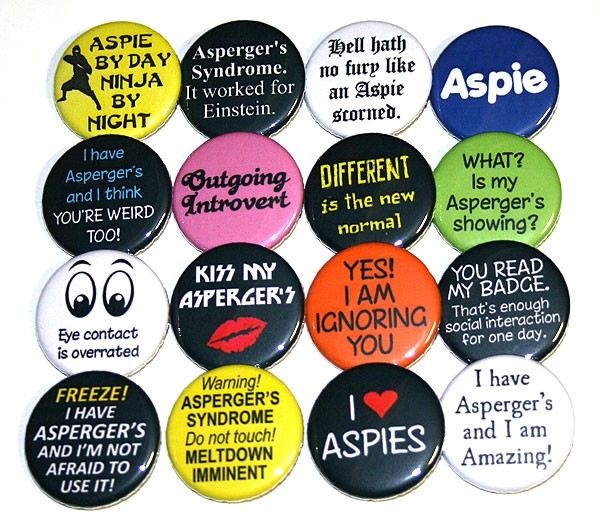
- Irritation should neither be splashed out nor accumulated in oneself. Both of these are harmful. If the glass is full - of course, there is one of two things: either pour out the water, or leave it full. The correct way out is one step earlier: and do not fill it. Let the tap water flow past the glass. The irritating factors of the outside world are like a devil who is trying to tighten and fix a spring with a hook in your head. If he succeeded, you have already lost. Now either the stretched spring torments you, or breaks and makes destruction. The secret is (and if the devil had a mind, he would give a lot for you to never guess before) that grabbing the spring and putting on the hook is a complex action for the devil that requires good coordination. If you make his hand tremble at the same time, nothing will come of it.
- If there are things that unsettle you, there will be bad people who will knock you out on purpose. This is a common breed of manipulators. If they can't piss you off, you've won.
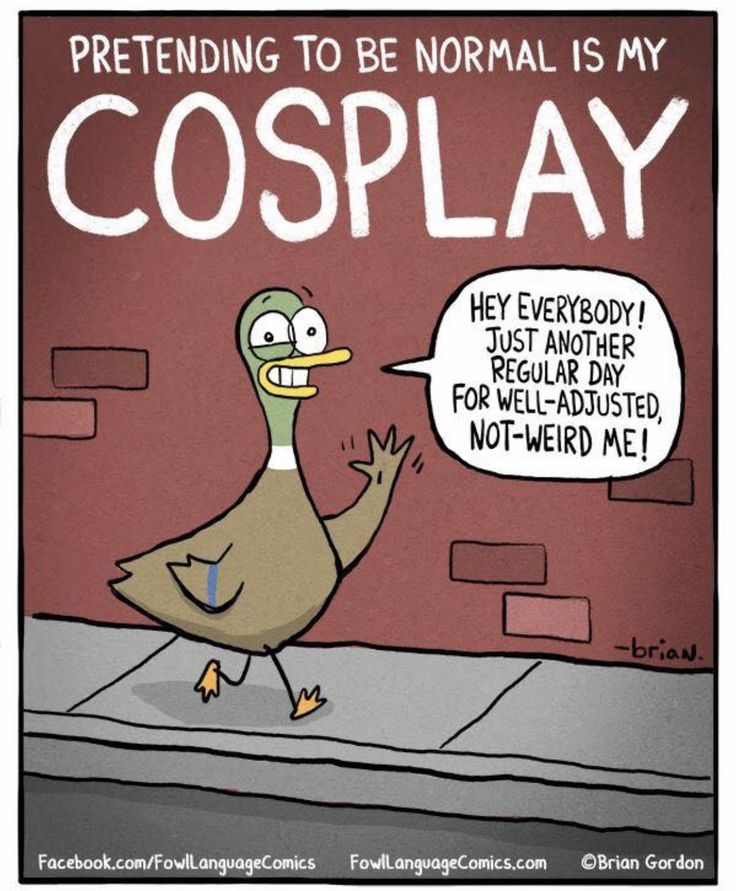
- Do you want to know people well? In a conversation, listen more to what the person says, and think less about what to say yourself.
- Catch up and overtake neurotypicals in social intelligence!
From the author:
The final version of this text will probably never be, I intend to finish this text all my life.
In the end, to understand what I want to write about, it took me ten years, or even twenty.
Yura Quiet (author's blog)
The world from a special angle: 25 mini-stories of a person with ASD
I am Oksana Kvazik. I'm 36 years old. I have Asperger's Syndrome: a mild form of autism. Neurotypical people - relatively statistically normal without mental disorders - often say that those who have some kind of autistic manifestations live in their own world. No, we live in the same world, but we feel and perceive it differently.
Thoughts that I have autism appeared during my studies at the medical institute. True, then a lot was explained by the “3rd year syndrome”, when students found all the diseases in themselves. But some time later, at the age of 31, I was diagnosed in Moscow by a psychologist, who confirmed that I was Aspi: this is how people with Asperger's syndrome affectionately call themselves. I went to the doctor then to calm down and make sure that I just have autism, and not a terrible upbringing and a trashy character ...
True, then a lot was explained by the “3rd year syndrome”, when students found all the diseases in themselves. But some time later, at the age of 31, I was diagnosed in Moscow by a psychologist, who confirmed that I was Aspi: this is how people with Asperger's syndrome affectionately call themselves. I went to the doctor then to calm down and make sure that I just have autism, and not a terrible upbringing and a trashy character ...
Now I work as a doctor and am raising a 13-year-old daughter. I want to tell everyone how difficult it is sometimes for me to live among neurotypicals and what difficulties I have in ordinary situations.
Kindergarten… My most pleasant memory is that my father brings me very early, before 7 am yet, turns on the light and leaves me alone. I can look at a hamster in a 3 liter jar, stroke a carpet, or just lie on a wooden bench in silence. And don't think about anything: just enjoy and feel everything around. And then the torture begins: people come.
All the guys in the group played, talked, reached out to each other, and they madly interfered with me. The teachers considered it their duty to make me friends with everyone, but I didn’t need it - I considered myself shy, ill-mannered, wild. Because of this, I felt guilty all the time.
And the teachers also forced me to perform at all matinees. When it didn’t work out, and it always happened, they shamed me in front of everyone and said how bad I was. This feeling of guilt that I am not what I should be is still there.
Respite saved me from sleep: I slept very well from fatigue. My bed was in the farthest corner against the wall. It was the second favorite moment: to hide from everyone at least under the covers.
Story 2. School
Nobody knew about my syndrome at school. For everyone, I have always been a strange, ill-bred girl with a bad temper, who, out of spite, does not answer the lesson and is silent when questions are asked.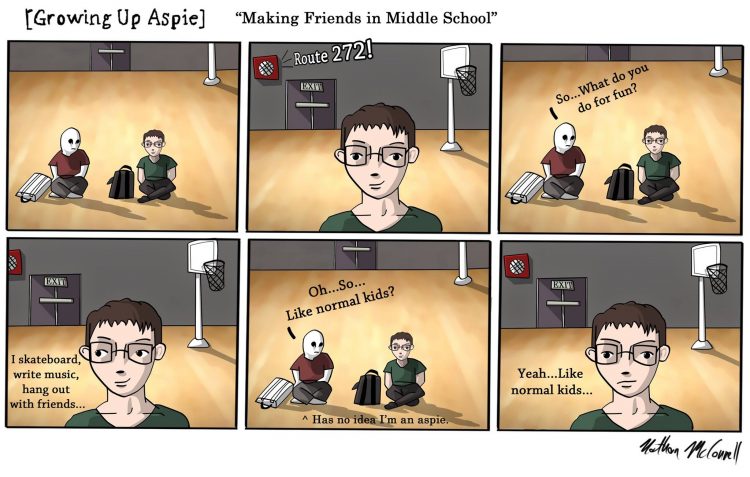 And I just could not open my mouth and start talking: it was very difficult. I calmly sat alone on the last desk. I let others write off.
And I just could not open my mouth and start talking: it was very difficult. I calmly sat alone on the last desk. I let others write off.
I was very lucky with my first teacher: as soon as she realized that I didn't answer in class, she started asking me questions in private or in writing. And she hasn't lowered her grades for dyslexic mistakes yet. Until now, in order to understand what to write - the letter "b" or "d", - I pronounce the word aloud several times. With printed text on the phone, it's easier: T9 underlines errors in red, and I see that something needs to be corrected.
Story 3. Friends
Once at school the class teacher and the school psychologist decided that I had few friends. It was a nightmare. I didn't understand what they wanted from me. I had friends: Lena and Vitya. But we didn’t communicate with them outside of school, because I didn’t need it: 5 hours in a confined space with a crowd of screaming people touching you and rare interesting lessons required so much strength to comply with all the rules that when I came home, I was powerless went to bed. I sighed only when the psychologist and the teacher switched to other children.
I sighed only when the psychologist and the teacher switched to other children.
Story 4. Unpleasant tactile sensations
I can only write with one brand of pen. I can also write something with others, but not for long, because touching them annoys me and bothers me. Drawing with pencils of the same shape is already easier.
I've been wearing the same clothes for years because new clothes make me unable to think. Trying on in the store brings a lot of inconvenience. Socks with threads inside can cause a broken window or aggression.
I think with horror that I will have to change my hairbrush soon, but I can't find the exact same one in the store. Once I forgot it at home, so I had to spend 13 hours at work and walk down the street uncombed. And because I was shaggy, there was nervousness, but it's better than using the wrong comb.
I recently started reading a world bestseller, but I couldn't finish it because of the quality of the pages: I can't hold the book in my hands - touching the sheets of paper is annoying, and all attention is switched to the fingers.
I never use things that make me uncomfortable. I can't think or work in them. And the saddest thing is that I don’t have clear criteria on how to choose the right clothes or the item I need: whether they suit me or not, I can only find out in practice. Sometimes I take something in reserve: for example, I have 6 new toothbrushes that suit me at home - I can’t find the same ones in stores anymore. Therefore, I ignore the recommendations of dentists about the regularity of replacing brushes, otherwise I may be left without them for the selection period.
Story 5. Hints
Oh, hints are like Japanese to me. My favorite phrase that I say to all those close to me is: “If you don’t tell me directly and clearly, then I won’t understand.” Children understand this much faster than adults.
But I almost learned to guess about the emotions of the interlocutor - the books that I read in childhood and youth helped. But this is only with visual contact with a person.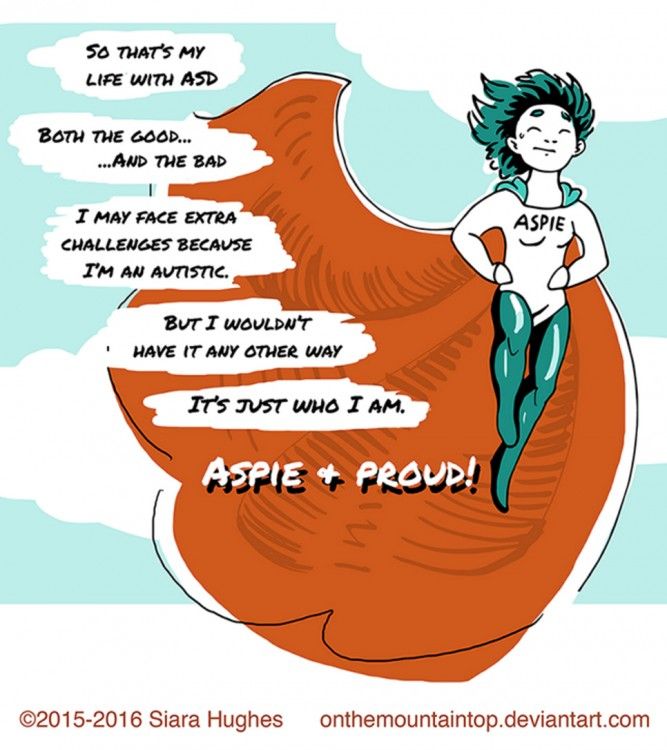 But conversations, for example, in messengers or messages require a lot of effort: it is not always possible to understand the underlying meaning of the text.
But conversations, for example, in messengers or messages require a lot of effort: it is not always possible to understand the underlying meaning of the text.
History 6. Emoticons
Well, who came up with so many emoticons?! What for? A person expresses his emotions with them, but I do not understand. The emoticon after the phrase can greatly affect my perception, and very often I make mistakes in the interpretation.
Understanding a smile is much more difficult for me than the facial expressions of a living person, which I have adapted to guess at least a little, although, most likely, I just feel the moment. I don't know how to respond to emoticons. In this case, I want to put my favorite: the one that beats his head against the wall. He is native. It must be left.
History 7. Communication
For me, a huge problem is the beginning of communication. Very often I avoid starting a conversation. It doesn't matter if it's oral or written. All the time there is a feeling that I interfere with a person or distract him. Even if I know that the interlocutor will be happy.
All the time there is a feeling that I interfere with a person or distract him. Even if I know that the interlocutor will be happy.
I don't need big companies. I get tired of talking to people.
Story 8. Lilies of the valley
I love lilies of the valley — lovely, delicate flowers. I try to have at least one bouquet every spring. But they don’t grow in the country, men don’t give. You have to buy yourself.
There are always a lot of bouquets in the markets. It would seem that everything is simple: he came up and bought it. But that's just for everyone, not for me. I saw the flowers I liked. I planned everything in my head: you need to come up, ask the price and point to the flowers I need, and then give the money. I prepared the words: “How much do lilies of the valley cost?”. In response, you should probably say: “Thank you.” You can do it without greeting. So, I keep 4 words in my head. Although, you can not say: "Thank you." There are 3 words left.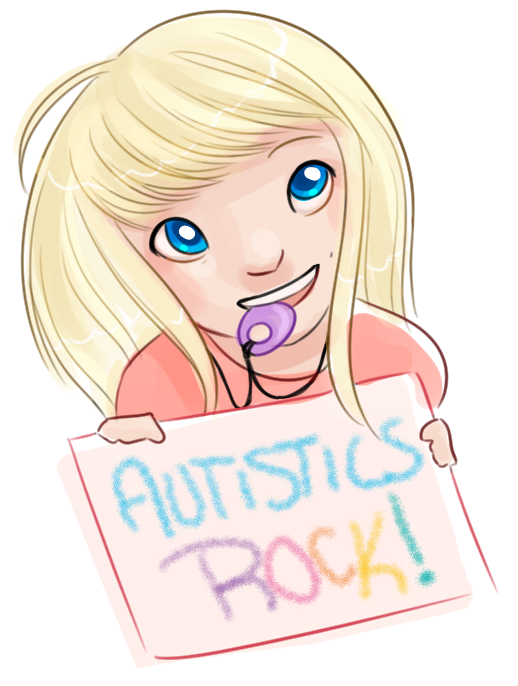 I breathe out. I'm coming. I say ... And now I am the happy owner of a bouquet of lilies of the valley!
I breathe out. I'm coming. I say ... And now I am the happy owner of a bouquet of lilies of the valley!
Second time. I pass by. I stop. I repeat again all the words in my head. I move my lips. Another try. And more... This time I went home with my eyes full of tears. And without lilies of the valley. Again, I couldn't start a conversation. And this is not embarrassment, but huge problems with starting a conversation. This is something that neurotypical people can't understand.
Story 9. My younger brother's wedding
I am so happy that my brother is getting married. But I'll definitely have to say something in front of everyone. Not just come up, but stand up and say wishes into the microphone. And there will be a lot of strangers there ...
Wedding. MARRIAGE REGISTRY. I was never able to approach the young ones, because it is too crowded and there are a lot of people. I just huddled in a corner and tried not to run away. It worked, but it took a lot of effort.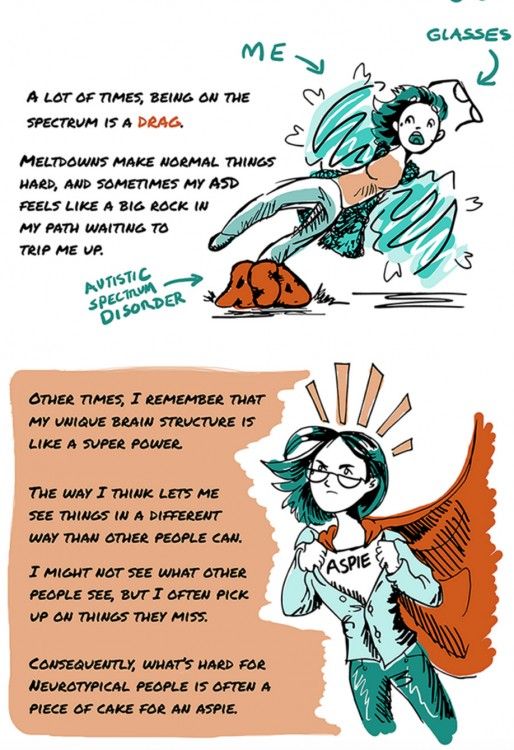 Lots of.
Lots of.
Banquet. It's time to say some words to me. But instead of me, she comes to congratulate her daughter: how lucky I am with her. Again I feel guilty that I did not live up to expectations, I could not, I spoiled the celebration.
But on the other hand, those who have known me for 31 years are probably used to it. Although this, of course, is small consolation. But my brother, like other relatives, also does not understand that I am different from the rest ...
History 10. Hugs
People, remember that your hugs can frighten, irritate, unnerve, deprive you of peace and efficiency, cause disgust, disgust and desire to take off your clothes later. Even if outwardly the person is benevolent.
No need to hug everyone. This is the reason I don't like holidays.
Why is it customary in our country to touch a stranger without permission? Sometimes I respond rudely. I endure more. But I try to avoid lovers of hugging.
History 11. Visual memory
I have trouble remembering everything visually. My brother bought a car for himself more than 13 years ago, and I still recognize it only by the number or the driver: several times I even got into someone else's car because of this. They are all the same to me.
And I especially confuse people. I cannot, for example, recognize my colleague without a white coat or in a suit of a different color. But about 10 years ago I stopped worrying about it. I just say hello back. If necessary, please remind me. I remember people only after months. Now I have an excuse at work: everyone is wearing masks!
History 12. Repeating the same actions
There is a certain route, following which I am calm. But somehow our yard was almost completely dug up, so it was no longer possible to go through the usual way. And every time in such situations, I begin to stress. To calm down, I have a ritual: I jump on the spot. At work, for example, I try to do it without patients. And if there are colleagues nearby, they do not stop me.
At work, for example, I try to do it without patients. And if there are colleagues nearby, they do not stop me.
At the traffic lights, I always press the button 2 times, even if someone has already pressed it. So I'm calmer. It is also like a ritual.
If you need to follow to a new place, then I look at different maps: "2GIS", "Yandex. Map, Google Map. I print them out, draw my way with a pen. I sign conspicuous objects. I go on the navigator and with a map in my hand. I always reach, but I feel a lot of stress. Asking a passerby how to get somewhere is not my option.
Story 13. Unique difference from neurotypicals
What distinguishes me from ordinary people is my belief in miracles and willingness to perform them. Once in a store, I found badges with the inscriptions: "Change the world" and "Don't panic - I'm a fairy." I realized that they describe my perception of the world. Bought them!
But the difficulty of saying the first word to someone prevents me from doing my miracles…
History 14.
 Studying
Studying Autism spectrum disorder did not prevent me from finishing school and successfully passing exams at several universities in the city. I had a choice where to study. I followed my dream: to the KemGMA. And never once regretted it. I have completed my internship in internal medicine, retrained in clinical pharmacology, and plan to begin training in dietetics soon. I like to help people!
At the same time, the institute did not know about my syndrome.
History 15. Loudness of the world
For me, the world is louder, brighter and more diverse tactilely. I watch TV with a sound of 9 units, and my brother with normal hearing - 13 units.
Even an ordinary conversation becomes loud for me after a couple of minutes. If it is impossible to leave, then I begin to wring my fingers or foot. To pain. Then the overload is distributed a little.
Hurt myself is one of my first ways to relieve sensory overload. But you need to learn other socially acceptable and non-destructive ways. However, they didn't teach me.
However, they didn't teach me.
History 16. Critical situations
There are 2 types of critical situations: those that I prepared for and those that happened spontaneously. For example, one day when my daughter and I went camping, I saw teenagers dabbling with a knife while preparing dinner. As a result, an accident occurred: one guy injured another femoral artery. I was ready for such an emergency, because I knew how to provide first aid: I knew what to do and in what sequence.
But if I am not ready for some critical situation, then panic sets in. Therefore, I try to get training on actions in various emergencies: in case of fire, flood, accident, loss of a person.
Story 17. Fine and gross motor skills
Usually, parents develop fine motor skills in children, forgetting about gross motor skills. I have no problems with the first one, but with the second one it’s a problem: coordination, to put it mildly, is not perfect, it’s difficult to repeat the movements. For example, I can hit the ring with the ball only when I am standing to the left of it, while throwing it to the right. I often miss the doorway - on the left forearm, because of this, there are a lot of scars from the doorknob. It took me 4 years to learn how to enter a room without touching it.
For example, I can hit the ring with the ball only when I am standing to the left of it, while throwing it to the right. I often miss the doorway - on the left forearm, because of this, there are a lot of scars from the doorknob. It took me 4 years to learn how to enter a room without touching it.
Story 18. Love
Asperger's does not prevent me from loving. If I love someone, then completely, completely.
Of course, hugs are almost always an act of will on my part. I don’t remember the last time I hugged my parents: my love for them is manifested in care.
It is more difficult with men. It's not easy to love me. I have not yet met someone who would accept me for who I am. When I was married, I sometimes went out for a walk at night to relieve sensory overload. Or she didn't let herself be hugged because she lost her balance. Or often silent. Or she could lie down and just hold her husband's leg.
My ex-husband did not know about my syndrome. There were no special problems in communication during our life together: I studied and worked for most of the marriage, so there was little time for long conversations. But that was enough for me. We broke up with him because of his betrayal.
There were no special problems in communication during our life together: I studied and worked for most of the marriage, so there was little time for long conversations. But that was enough for me. We broke up with him because of his betrayal.
Story 19. Child and mother's syndrome
I only told my closest relatives about my Asperger's syndrome. And a lot of people don't take it seriously. I didn't tell my parents. But my daughter knows about my features.
It is difficult for my daughter to understand that I am Aspi. After all, she never had a neurotypical mother, although she herself belongs to neurotypicals. By the age of 9-10, she learned to speak directly to me about her needs: “Today you kissed me only 20 times, and I need 10 times more!” I act according to the situation: if there is strength, then I kiss many more times, and if not, then I just touch her while she is busy with her own business.
Of course, my daughter does not fully understand all the features of her mother, but she still tries to accept this reality and find a compromise between her needs and my capabilities.
Story 20. Attention
Another conversation with my daughter.
— Mom, your child needs attention!
— But I look at you and listen.
— That's not enough, I want you to talk to me too.
- It's hard for me to speak.
— But I NEED to talk to you.
— All right, daughter, I will try…
A difficult conversation. She need. It's just vital. And I often can't. And again doubts, experiences. It used to be reading. I need to start reading to her again at night. Reading aloud is much easier than speaking...
Story 21. Sense of humor
I have a sense of humor. And I smile at funny situations. But I rarely laugh out loud.
History 22. Stereotypes
For most people, an autistic person is the hero of the movie "Rain Man" or a strange person who is always silent and walks in circles. But many do not know that autistics are different.
I don't know if it's a coincidence or not, but my favorite color is blue: like on ribbons in support of people with autism.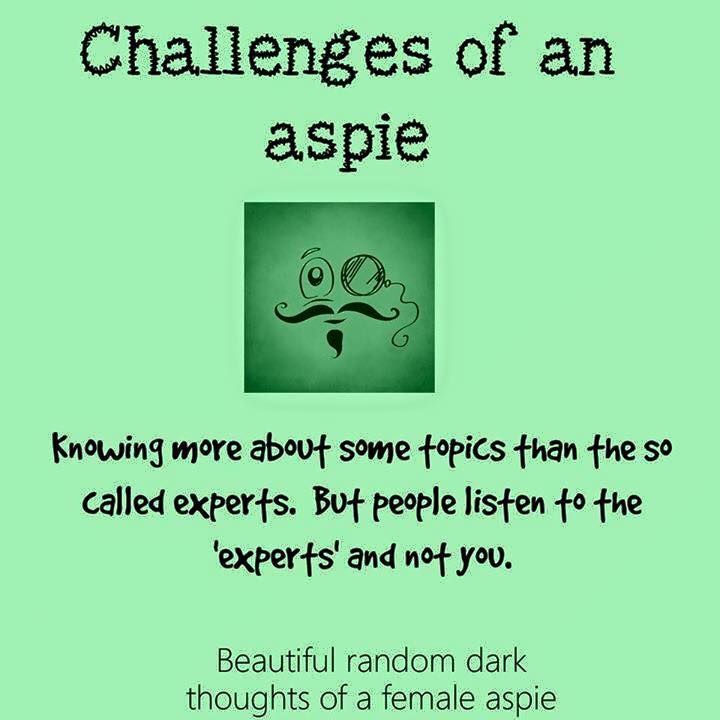 And that's why I love looking at the sky so much.
And that's why I love looking at the sky so much.
Story 23. Treatment
Finding out if you or your child has autism can be done by talking to a doctor, such as a neurologist at a polyclinic. But often he does not know all the signs. Therefore, it is best to turn to specialists in special centers that study this topic and help people with this feature.
After diagnosis, there is no cure in the traditional sense. There are only classes with a psychologist, defectologist, speech therapist, exercise therapy specialist. After them, a person with ASD fits into the neurotypical world as much as possible.
Story 24. Helping other mothers
I hope that my stories can help someone. Suddenly, someone's mother will read and understand that her baby wears the same T-shirt or pair of socks, not out of spite or spite, but because he cannot do otherwise. Physically, it cannot.
It was in 1985 that we didn’t hear about autistic people and I was “broken” in kindergarten, and in 1990, when I went to school, my parents had only one goal - to figure out how and what to feed me. After all, it was believed that if the child is alive, well-fed, dressed, then everything is fine.
After all, it was believed that if the child is alive, well-fed, dressed, then everything is fine.
Now there is an opportunity to consult with specialists and help a person to be happy.
Story 25. Patience
When Autism Awareness Day is "celebrated" on April 2, children with the condition and their parents are often gathered and entertained. But it is better to focus on something else. You can also hang a large poster in all clinics, kindergartens, schools and children's stores: “If you see such and such signs in a child, then he may have autism. Contact a specialist at ... ". Children with ASD can be helped. It is necessary to prepare lectures for educators and teachers to pay attention to certain features in the child's behavior. It may be difficult, but it is very useful.
If psychologists had not tortured me in my childhood with questions: “Girl, are they hurting you?”, “Why are you not friends with anyone?” If they had helped me cope with dyslexia and dysgraphia, then my life would have been easier.